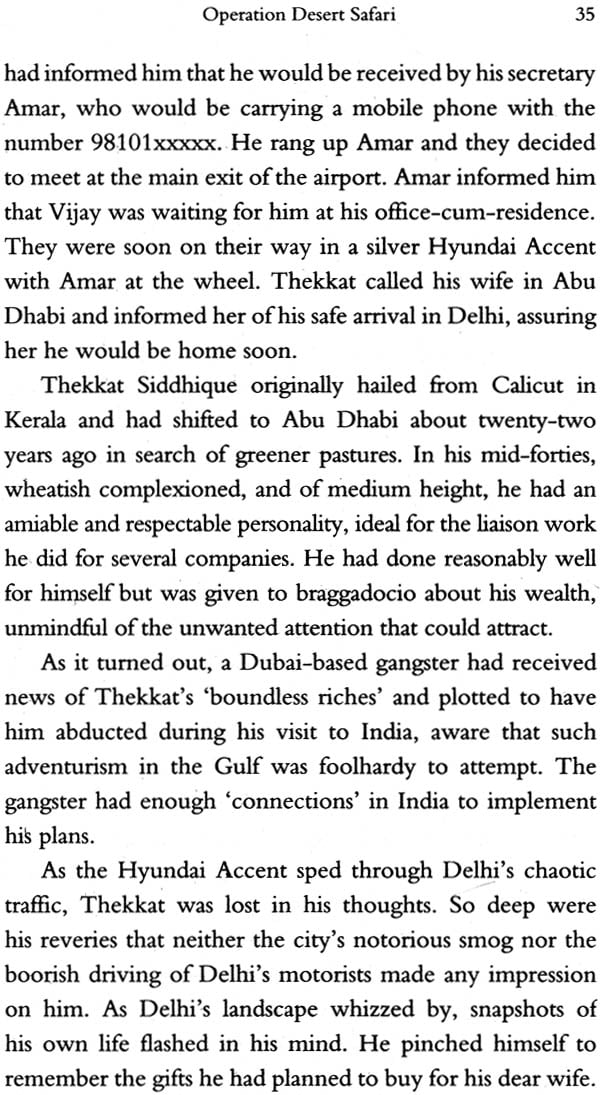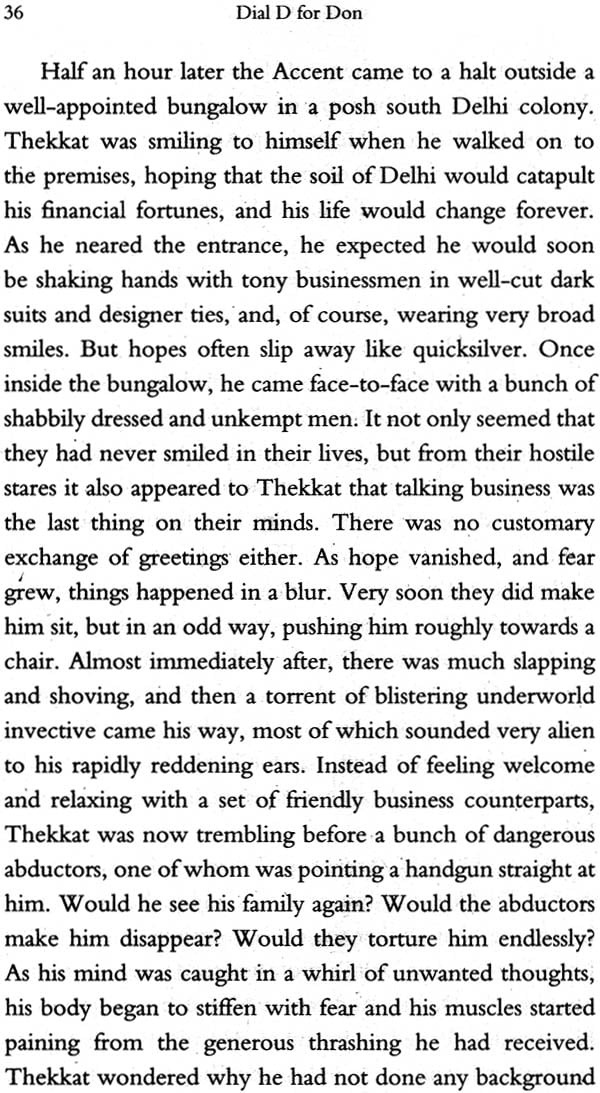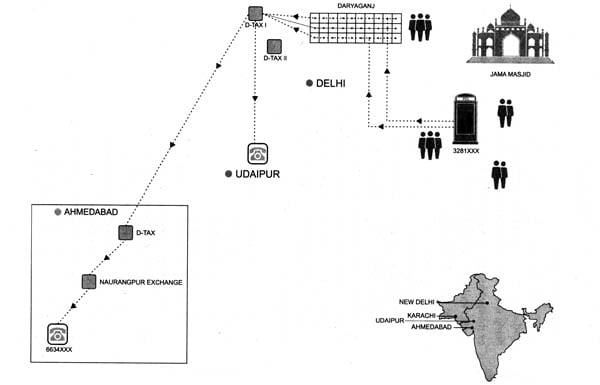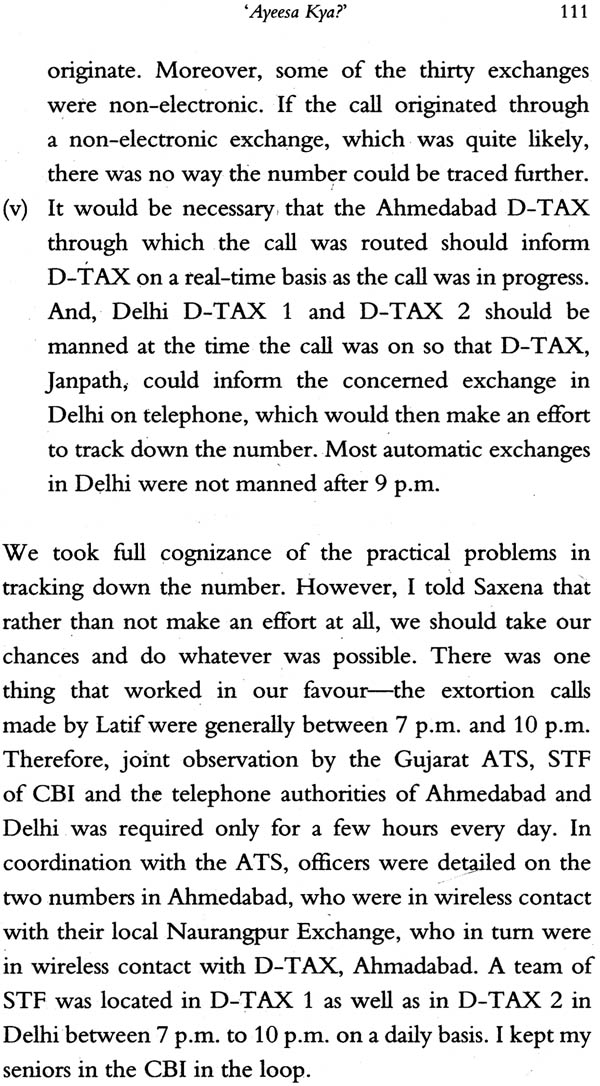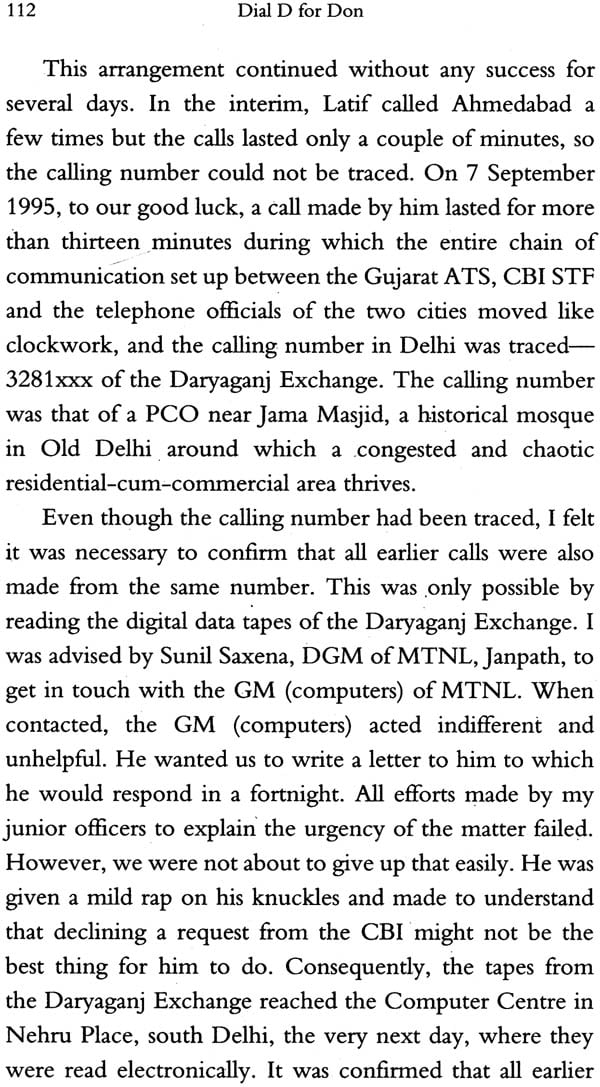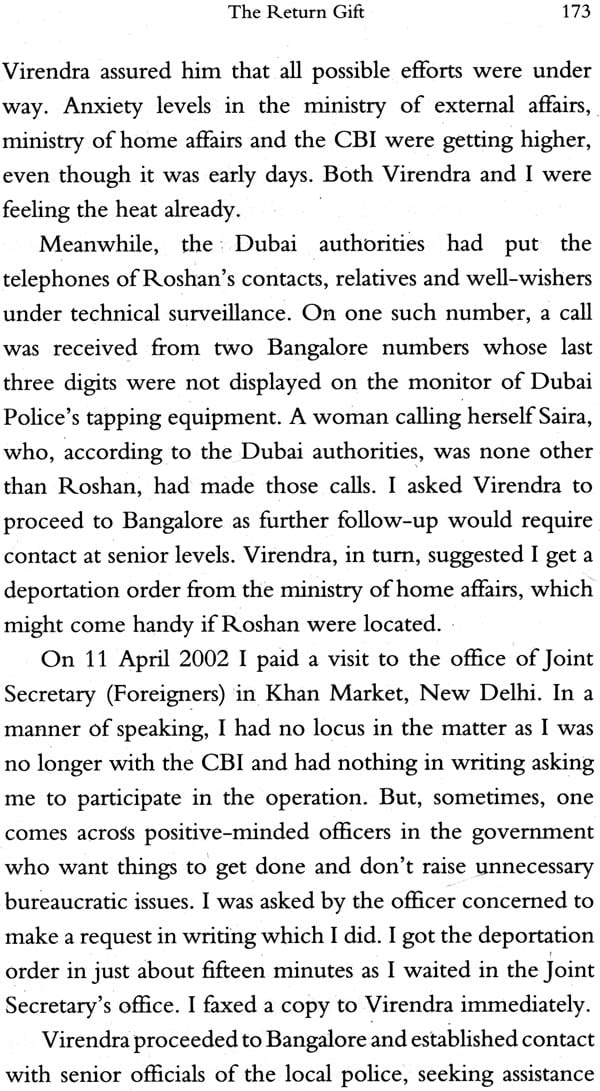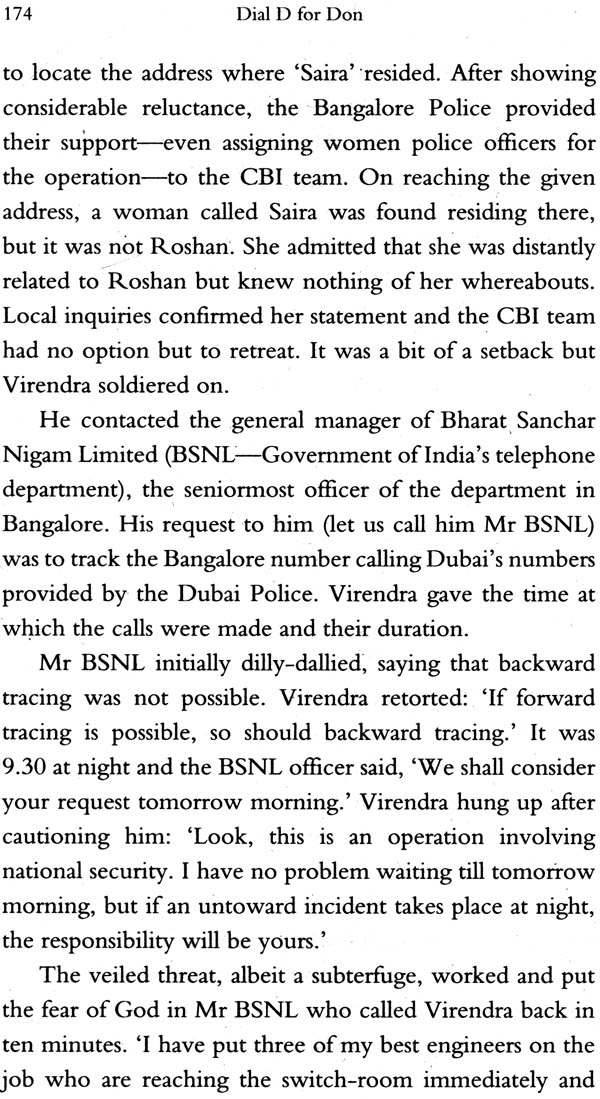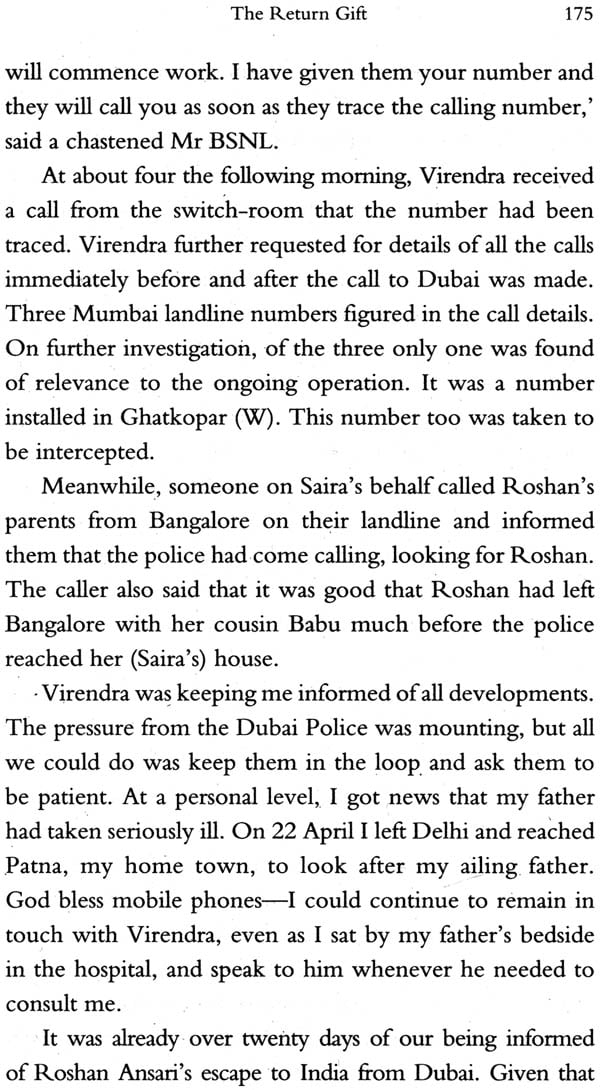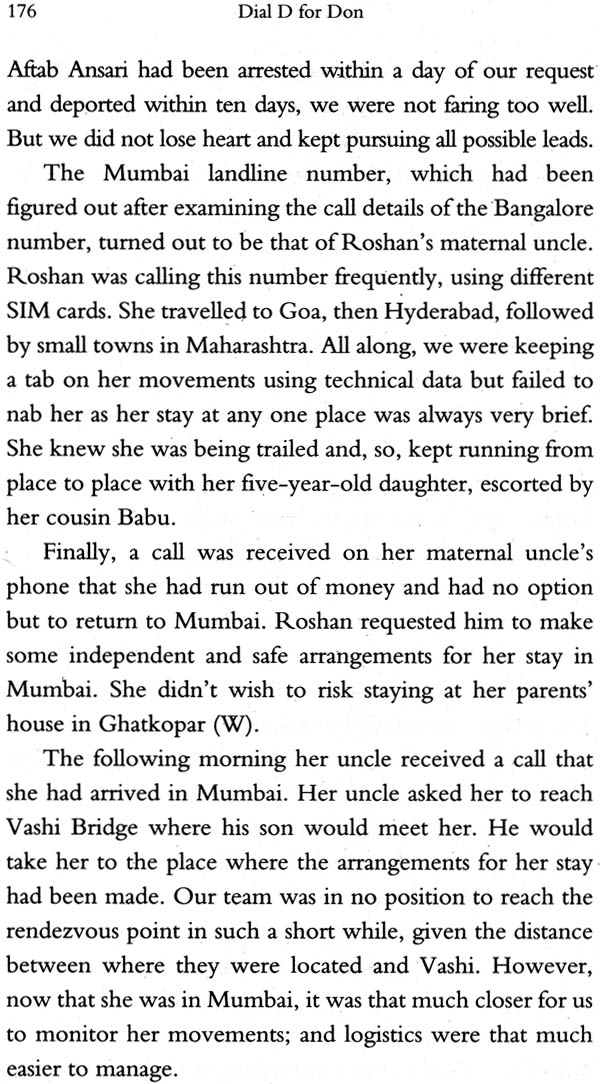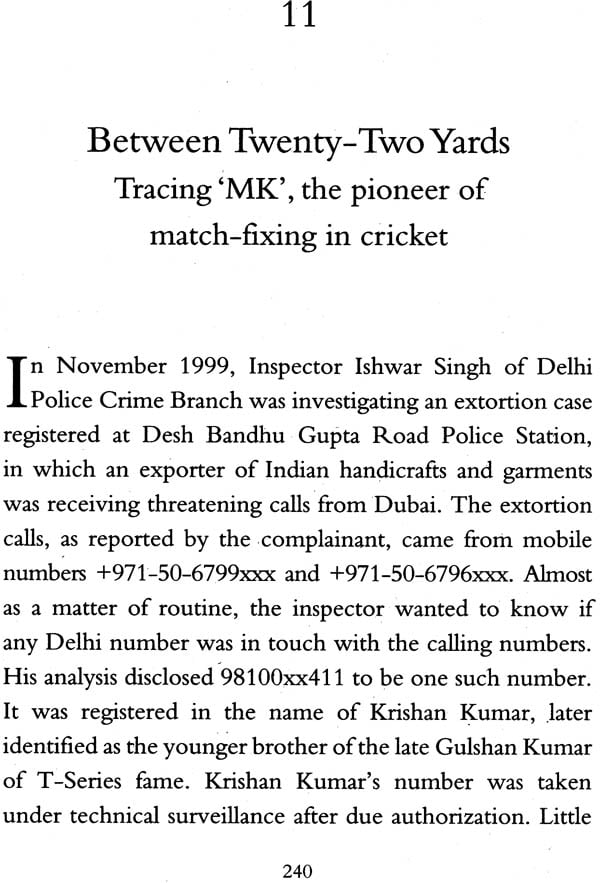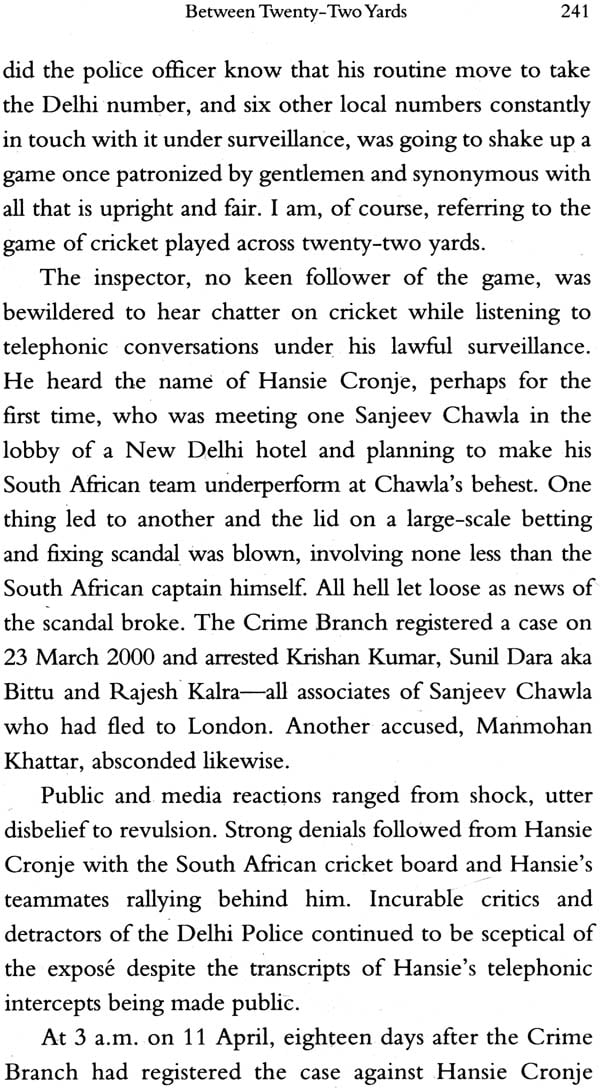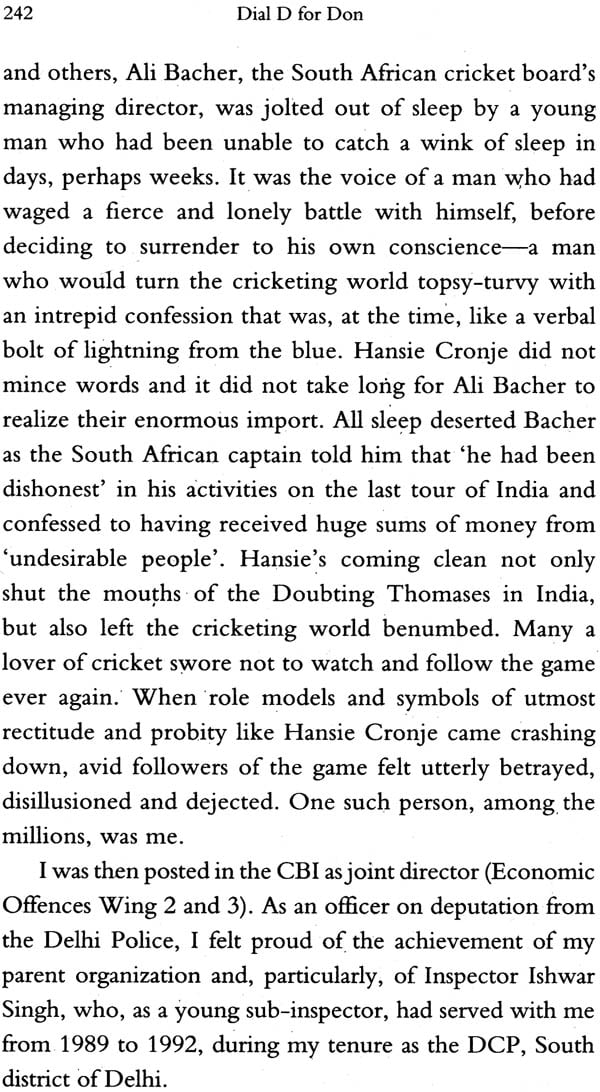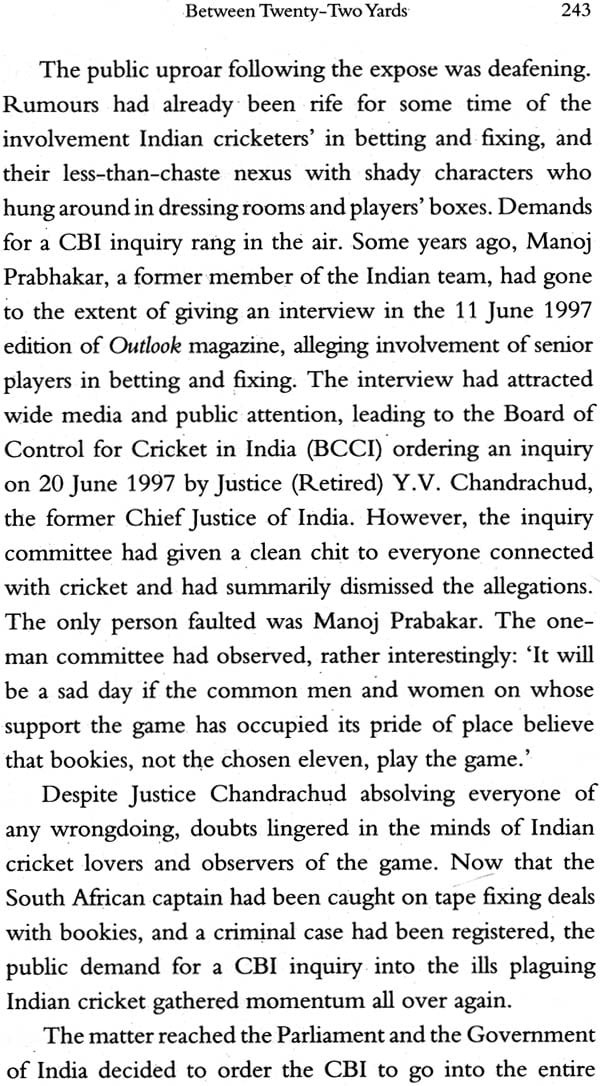
Dial D for Don (Inside Stories of CBI Missions)
Book Specification
| Item Code: | NAL577 |
| Author: | Neeraj Kumar |
| Publisher: | Penguin Books India Pvt. Ltd. |
| Language: | English |
| Edition: | 2015 |
| ISBN: | 9780143424420 |
| Pages: | 285 |
| Cover: | Paperback |
| Other Details | 9.0 inch x 6.0 inch |
| Weight | 350 gm |
Book Description
The razor-sharp sleuthing of a brilliant IPS officer was behind these and other high-profile CBI missions. In his thirty-seven years of service, Neeraj Kumar neutralized several terror modules and decimated insidious organized crime syndicates across continents, working closely with Interpol, FBI, New Scotland Yard and numerous other agencies.
In his candid recollections, Kumar gives readers a fascinating glimpse into the workings of the CBI through eleven of his biggest cases-including the arrest of Abdul Latif, the unconquerable don of Gujarat; the capture of Jagtar Singh Tara, a dreaded ferrorist behind Punjab CM Beant Singh’s assassination; and the nabbing of Romesh Sharma, a Dawood henchman masquerading as a Delhi-based politician.
Full of explosive details and nerve-racking suspense, Dial D for Don is an intimate look at some of the most thrilling crime stories of our fimes.
Neeraj Kumar is one of the most distinguished police of the country. He completed his post-graduation from St. Stephen’s College, Delhi University, and joined the Indian Police Service in 1976. In 2013, he retired as the commissioner of police, Delhi. Earlier, he served in the Central Bureau of Investigation (CBI) first as DIG and then as joint director. During his nine-year tenure in the CBI, he investigated several sensational cases and conducted a number of important transnational operations, involving terrorism, organized crime, economic offences and corruption. He was later joint commissioner of police, Special Cell of the Delhi Police-mainly responsible for tackling Pakistan-sponsored terrorism-and the director general of prisons, Delhi.
In an illustrious career spanning thirty-seven years, Kumar dealt with a range of high-profile assignments and ushered in novel initiatives, like a literacy and placement programme for prisoners; a programme for prisoners; a programme called YUVA, for youth susceptible to crime; Aapka Update, a schme for providing regular updates on police to complainants; and Jan Sampark, a platform for members of the public to meet senior police officers.
Kumar represented India at the UN Convention on Transnational Organized Crime and later to draft the UN manual on countering kidnapping and extortion. The Government of India recognized his work by awarding him the police Medal for Meritorious Service in 1993 and the President’s Police Medal for Distinguished Service in 1999. Kumar is presently the chief adviser to the Anti-Corruption and Security Unit of the Board of Control for Cricket in India (BCCI).
When I joined the police, we were taught that there is no crime that cannot be solved and that if you are focused and determined, you can scale any peak. Even in the Intelligence Bureau, where I worked for over fifteen years, the implicit understanding always was that there is nothing you cannot accomplish if you set your mind to it. The CBI is no less, as I discovered when I served in the organization. This book also conveys it in so many words. You can literally feel the passion and savour the author’s success as he takes on one intractable case after another, Facing all kinds of obstacles. No wonder Neeraj writes in ‘Operation Desert Safari’ that it was one of the most thrilling and satisfying cases of his life. Also, the lavish acknowledgement and gratitude that he and the CBI received from the Gujarat government and the Gujarat Police when they apprehended the mafia don Abdul Latif, whose notoriety seemed to be coming close to Dawood Ibrahim’s. Not to forget the elation he and his team felt when they finally brought back Yakub Memon’s family from Dubai, and a little later his wife and their month-old daughter fighting all odds created by the ISI. I have known Neeraj as a soft-spoken person, not given to any drama or temper tantrums. But the hard slap he gave to Romesh Sharma, an underworld thug whom he later arrested should be resoundingly applauded even by a diehard civil rights activist.
All stories (and true stories, mind you) in this book are grippingly narrated as though like a whodunit novel. You can’t help but breathtakingly participate in the progress of the cases and join the author in jumping with joy on their dramatic conclusion. You repeatedly discover that Neeraj was not just a passive leader but often led from the front, at times even risking his life. His restlessness is amply reflected when he recounts a case getting stalled, which he says left him with no choice but to play a direct, hands-on role. Investigations, whether by the CBI or the police, police, call for not just skill, which one needs in enormous measure, but also immense patience, perseverance, passion and luck.
Although different in the level of action compared to other cases, the narrative on Dawood Ibrahim, the legendary gangster of gangsters, is no less interesting, especially the personal exchanges between him and Neeraj. The son of a police constable, Dawood did not get the head start other children of middle-class or affluent families get. Yet he not only emerged as the top gangster of India and acquired a notorious and even mysterious halo, he also had to seek safe haven Pakistan when things became too hot for him here. Even while in India, he established a highly successful and well-oiled global network of dedicated compatriots, inspiring fear, awe and their inevitable loyalty. Dawood’s major mistakes could be his falling out with Chhota Rajan, joining hands with Pakistan and playing a major role in the Mumbai blasts of 1993. Otherwise, he could have continued to lord over his criminal empire in India and would not had to bolt to Pakistan. His gang could have by now been among the world’s deadliest most powerful, posing a serious challenge to all other global criminal networks. All said and done, he is now but a fugitive as though trapped in Pakistan.
Coming to the CBI, I am sure readers will appreciate after reading this wonderfully written book that it is not entirely a caged parrot or a mere handmaiden the Central government. When netas or bureaucrats have no stakes or are under no pressure themselves, they can be quite non-interfering and let the CBI be. They generally don’t even care what the bureau is up to. But when the situation is different, they can be quite a handful to manage for the agency’s top brass.
There is no doubt that despite all its shortfalls, the CBI commands enormous nationwide credibility. Hence, the not infrequent demand for a CBI inquiry into almost anything under the sun. Very few people know that the CBI is a small, understaffed organization with too much on its plate. When saddled with sensational cases or cases of national importance, it has no choice but to stall its normal work and shift focus almost entirely to an individual case. In the Rajiv Gandhi assassination case, for instance, the CBI had to close all normal operations in Chennai, Hyderabad, Bengaluru and Thiruvananthapuram and draft almost the entire of these units to the team investigating the case.
Sometime in early 2014, I received a call from the publishers of S. Hussain Byculla to Bangkok, requesting me to come for its book release. I was also informed that following the book launch, I would be in conversation with the author. Rather intrigued about why the publishing house had thought of me, inquired of the caller why I was being asked to do the honours. The gracious lady said: ‘Sir, it is the author’s desire’.
I had not met Hussain Zaidi before but knew of him because of his book Black Friday on which the eponymous film was made. The publishers sent me a copy of Byculla to Bangkok a day before the event. Having dealt with the underworld of Mumbai (earlier known as Bombay) during my nine-year stint the Central Bureau of Investigation (CBI), and familiar with the dramatis personae, the book made for fascinating reading. I finished it a couple of sittings and was ready to be ‘in conversation’ with the author.
The book release passed off delightfully. My conversation with the author was interesting and enjoyable, even though of the time I was finding faults with the book. From typos to facts, I didn’t hold back any punches. In the process, I might have annoyed both the organizers of the event and the author.
The following day, Zaidi Sahib called to inform me that he met Chiki Sarkar, the editor-in-chief of Penguin Random House, who was keen to publish my memoirs. I thought it was a bit of a joke-I, writing my memoirs, and that too for such a reputed publishing house. But lo and behold, in a matter of a few days, a contract from Penguin arrived in my mail. Caught totally by surprise, I wondered how this had come about when neither Chiki nor Hussain Zaidi had read a word written by me. But, the fact staring me in the face was that I had been served a fait accompli and I had been served a fait accompli and I had to get down to putting pen to paper. The struggle that followed has been both trying and exhilarating.
The idea of writing my memoirs did not appeal to me in the least, nor did it excite me. I feel it requires extraordinary courage to lay bare the truth about oneself, to disclose the many dark secrets of one’s personal and professional lives, which are best left alone. Though it’s done frequently, for writing honest memoirs one has to be a Gandhi or Bertrand Russell to say it all. Further, many a memoir by police officers has gone completely unnoticed and ended up adorning the bookshelf of the author himself or gathering dust in sundry police libraries. Most of them are full ‘I did this in this district and I did that in that range’. After all, who is interested in reading such inanities about a cop’s life? Details of interesting investigations might still engage readers. I discussed with the publishers and proposed writing accounts of police operations I participated in during my tenure in the CBI instead. They were game and I set out on a journey of reminiscing and nostalgia. Since I had not retained any documents connected with the concerned cases, most of what I have recounted is based on memory with a little bit of help from colleagues who were partners in these adventures.
| Foreword by Raja Vijay Karan | xi | |
| Preface | xvii | |
| List of Acronyms | xxvii | |
| 1 | Gifts rrom the Gulf: The rise and fall of Aftab Ansari | 1 |
| 2 | Operation Desert Safari: The story of an anti-kidnap operation | 34 |
| 3 | Dial D for Don: My conversations with Dawood Ibrahim | 67 |
| 4 | Atithi Devo Bhawa': Busting the 'Lapka Gang' | 88 |
| 5 | Ayeesa Kya?': The unmaking of Latif | 101 |
| 6 | Our Man in Dubai: The CBI versus the ISI | 122 |
| 7 | The Return Gift: The arrest and deportation of Roshan Ansari | 166 |
| 8 | Devil Wears Khadi: The unmasking of Romesh Sharma | 185 |
| 9 | Salim the Disposable: Tracing the absconder Salim Kurla | 206 |
| 10 | Baitha hai, sir, baitha hai!': The netting of the Punjab CM's assassin | 221 |
| 11 | Between Twenty-Two Yards: Tracing of 'MK', the pioneer of match-fixing in criket | 240 |
| Acknowledgements | 261 | |

